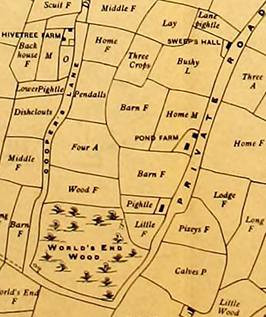
Copyright Notice: This article is from the Encyclopedia of North Carolina edited by William S. Powell. Copyright © 2006 by the University of North Carolina Press. Used by permission of the publisher. For personal use and not for further distribution. Please submit permission requests for other use directly to the publisher.

Additional Resources:
Field, John. A history of English field names. London: Longman, 1993.
Field, John. English field-names: a dictionary. Detroit, Michigan: Gale Research Co., 1973.
Image Credits:
Copinger, W.A. History of the parish of Buxhall in the county of Suffolk. London: H. Sotheran & Co. 1902. https://archive.org/details/historyofparisho00copi (accessed October 10, 2012).
Powell, William S. "Field Names." NCpedia. State Library of NC. 2006. https://www.ncpedia.org/field-names.